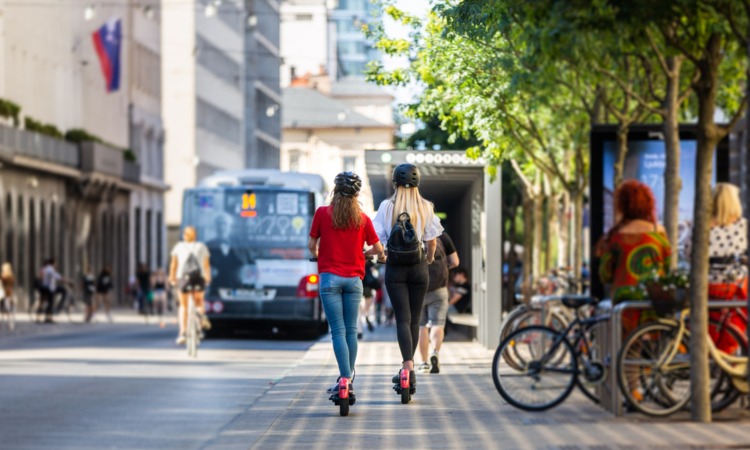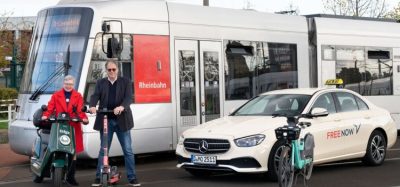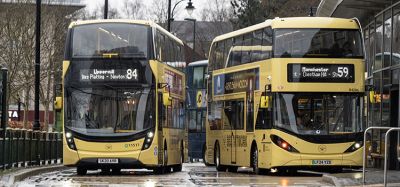First-of-its-kind initiative launched to make shared mobility the first, best option
- Like
- Digg
- Del
- Tumblr
- VKontakte
- Buffer
- Love This
- Odnoklassniki
- Meneame
- Blogger
- Amazon
- Yahoo Mail
- Gmail
- AOL
- Newsvine
- HackerNews
- Evernote
- MySpace
- Mail.ru
- Viadeo
- Line
- Comments
- Yummly
- SMS
- Viber
- Telegram
- Subscribe
- Skype
- Facebook Messenger
- Kakao
- LiveJournal
- Yammer
- Edgar
- Fintel
- Mix
- Instapaper
- Copy Link
Posted: 3 November 2022 | Intelligent Transport | No comments yet
The Shared Mobility Action Agenda and Action Network will see member organisations hold themselves accountable by setting and achieving realistic goals to make shared mobility the first and best option over owning a car by 2030.


On 2 November 2022, over 50 public, private and non-profit organisations released the full text of the Shared Mobility 2030 Action Agenda, the centrepiece of a one-of-a-kind initiative for advancing shared mobility, which holds its members accountable to a to-do list of actions that will accelerate and steer the shared mobility marketplace to its full potential.
“We are at a critical tipping point where the transportation needs of our world can be met with a growing shared mobility industry,” said Benjamin de la Peña, CEO of the Shared-Use Mobility Center, which is convening the initiative. “However, global climate leaders continue to underestimate, underfund and undervalue shared mobility, which has the greatest potential to provide cleaner, more accessible, more equitable transportation options to more people than any other single clean transportation solution. In the face of inaction, we’re mobilising and empowering government agencies, private companies, and non-profits to hold themselves accountable to advancing people-focused mobility that fights climate change and promotes equity.”
The shared mobility market has accounted for approximately $130 billion to $140 billion in global consumer spending in 2019. Cross-sector stakeholders see the growing potential of shared mobility to improve the quality of life and have joined the Shared Mobility Action Network to help advance their individual goals.
The launch comes ahead of the 2022 United Nations (UN) Climate Change Conference (COP27). Local governments are largely driving the Action Agenda in anticipation of the climate and equity benefits promised by shared mobility options, with mayors from diverse cities embracing the initiative.
New shared mobility network shares 2030 goals to reduce private car usage
“To be a city for everyone, Boston should be green and growing, moving more people on our streets,” said Boston Mayor Michelle Wu. “Shared mobility helps us connect our communities, advance our climate goals, and build a greener city for all.”
Accountability is a key feature of the Action Agenda that sets it apart from all other recommendations or principles designed to accelerate the adoption of shared mobility. Members are asked to set achievable goals for themselves in line with the Action Agenda’s rationale. As a group, the Action Network members will track progress at the company, agency, sectoral and global levels. The Action Agenda is a living document. As members meet or fall short of their goals, lessons learned will be formalised in a yearly report that recommends improvements to the Action Agenda to increase its effectiveness.
“Everyone should have equal access to a better life, and affordable, safe and accessible transportation options are key to achieving that ideal,” said Action Network Member and City of Memphis Mayor Jim Strickland. “People are struggling to keep up with gas price spikes and the rising cost-of-living. It’s our responsibility to find real solutions. We see investing in shared mobility as a means to create a healthier, more prosperous community.”
Shared mobility services include everything from public transportation to ride-hail, from car-sharing to on-demand responsive micro-transit, from shared bikes and scooters to paratransit. Shared mobility infrastructure includes safe pavements, protected bike lanes, complete streets and shared mobility hubs. Shared mobility systems also include the digital and information systems people use to find, access and use these services.
If you liked this, you may also be interested in:
▶ In-Depth Focus: On-Demand & Shared Mobility
▶ Solent region’s e-scooter trial approved to continue until May 2024
Related topics
Accessibility, Air Quality, Mobility Services, Sustainable Urban Transport
Related modes
Bikes & Scooters, Bus & Coach, Ride-sharing & Car-sharing
Related countries
United States
Related organisations
Coalition for Reimagined Mobility, Shared-Use Mobility Center
Related people
Benjamin de la Peña, Jim Strickland, Michelle Wu








